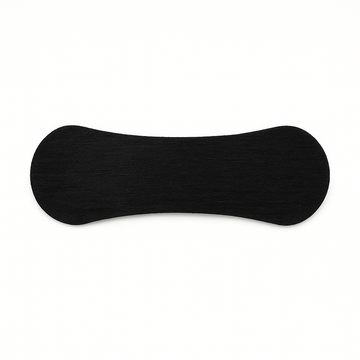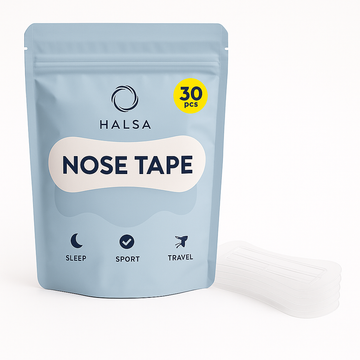Deep Sleep, Hormones, and the Power of Nasal Breathing: How Mouth Tape Can Help
When it comes to feeling energized, clear-headed, and balanced, hormones play a huge role. From regulating mood to controlling metabolism and even supporting muscle growth and recovery, your hormones quietly influence nearly every system in your body. But here’s the kicker—one of the most powerful (and underrated) tools for hormone optimization isn’t a supplement, special diet, or expensive biohack. It’s deep, restorative sleep.
Why Deep Sleep Matters for Hormone Optimization
During deep sleep—also known as slow-wave sleep—your body enters a state of repair and regeneration. Here’s what happens while you’re snoozing:
-
Growth Hormone Release: Growth hormone (GH) peaks during deep sleep. GH helps repair muscles, boost metabolism, and maintain healthy body composition.
-
Cortisol Regulation: Cortisol, your main stress hormone, naturally lowers during deep sleep, preventing chronic stress overload.
-
Testosterone Production: Both men and women need healthy testosterone levels for energy, mood, and metabolism. Testosterone production is closely tied to sleep quality and quantity.
-
Leptin & Ghrelin Balance: These “hunger hormones” help regulate appetite. Poor sleep skews their balance, making you more likely to overeat.
-
Thyroid Support: Deep sleep aids in the conversion of thyroid hormones, which regulate energy and metabolic function.
When you miss out on deep sleep, your hormonal orchestra gets out of tune—leading to fatigue, weight fluctuations, mood swings, and slower recovery.
The Nasal Breathing Connection
So what does breathing through your nose have to do with sleep quality? A lot.
Nasal breathing isn’t just about getting air in—it’s about getting the right kind of air in. Compared to mouth breathing, nasal breathing:
-
Filters and Humidifies Air: Your nose acts as a natural air purifier, catching dust, allergens, and microbes.
-
Boosts Nitric Oxide Levels: This gas improves oxygen delivery, blood flow, and even supports immune function.
-
Promotes Optimal Oxygen Uptake: Nasal breathing slows your breathing rate, allowing for better oxygen exchange.
-
Reduces Sleep Disturbances: Mouth breathing can increase the risk of snoring and sleep apnea, both of which fragment deep sleep.
The problem is, many people unconsciously breathe through their mouths at night—especially if they have nasal congestion, poor tongue posture, or simply never trained themselves to keep their mouths closed during sleep.
How Mouth Taping Encourages Nasal Breathing
Mouth tape is a simple yet powerful tool for retraining your body to breathe through your nose while you sleep. By gently keeping your lips closed, it helps:
-
Reduce Snoring: Less vibration in the airway means quieter nights.
-
Support Deeper Sleep: With nasal breathing restored, you’re more likely to reach and sustain deep sleep stages.
-
Improve Morning Energy: More oxygen-rich sleep leads to feeling refreshed instead of groggy.
-
Enhance Hormone Balance: Consistently better deep sleep means your hormonal rhythms can function optimally.
At Halsa, our Mouth Tape is designed to be comfortable, skin-friendly, and effective—so you can support your body’s natural breathing and sleep patterns without discomfort.
Putting It All Together
If you want to support better hormone balance, start by focusing on your sleep quality—specifically deep sleep. By encouraging nasal breathing with mouth tape, you’re not just improving airflow; you’re setting the stage for optimal hormone production, recovery, and overall wellness.
Small habit, big impact. Your body—and your hormones—will thank you.





